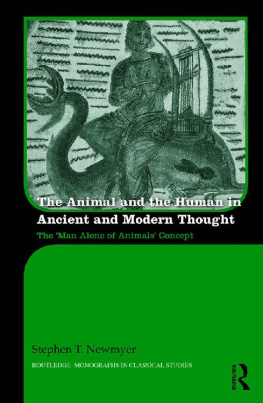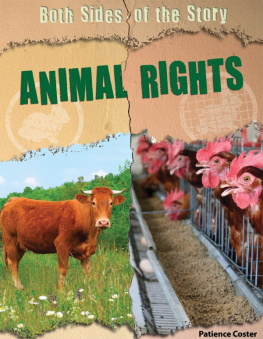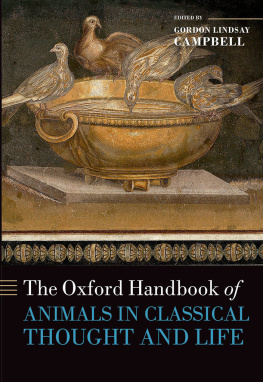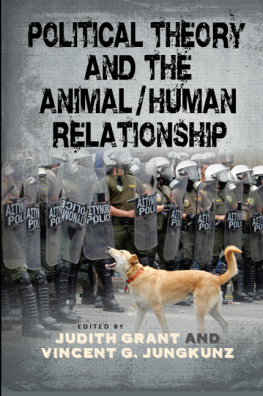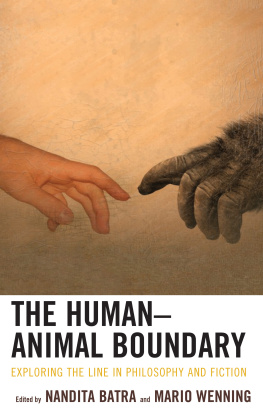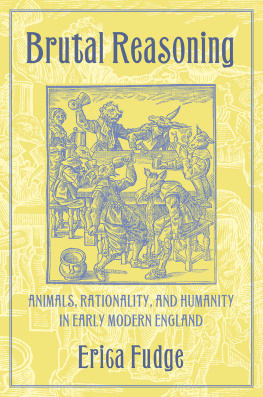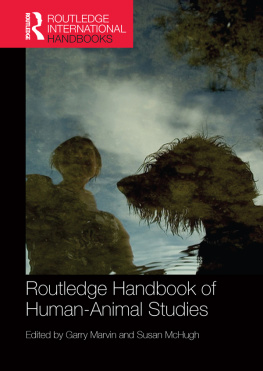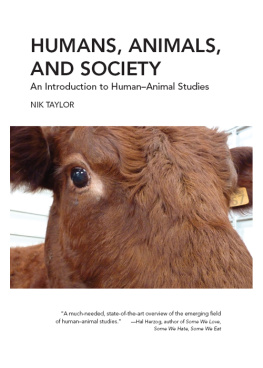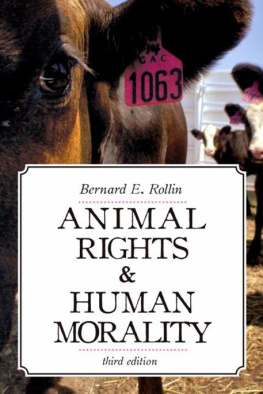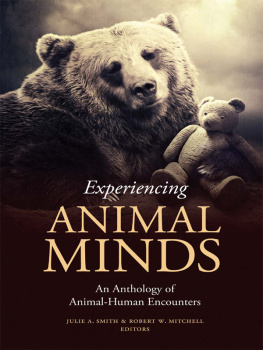Stephen T. Newmyer - The Animal and the Human in Ancient and Modern Thought: The ‘Man Alone of Animals’ Concept
Here you can read online Stephen T. Newmyer - The Animal and the Human in Ancient and Modern Thought: The ‘Man Alone of Animals’ Concept full text of the book (entire story) in english for free. Download pdf and epub, get meaning, cover and reviews about this ebook. City: London, year: 2016, publisher: Routledge, genre: Science. Description of the work, (preface) as well as reviews are available. Best literature library LitArk.com created for fans of good reading and offers a wide selection of genres:
Romance novel
Science fiction
Adventure
Detective
Science
History
Home and family
Prose
Art
Politics
Computer
Non-fiction
Religion
Business
Children
Humor
Choose a favorite category and find really read worthwhile books. Enjoy immersion in the world of imagination, feel the emotions of the characters or learn something new for yourself, make an fascinating discovery.
- Book:The Animal and the Human in Ancient and Modern Thought: The ‘Man Alone of Animals’ Concept
- Author:
- Publisher:Routledge
- Genre:
- Year:2016
- City:London
- Rating:4 / 5
- Favourites:Add to favourites
- Your mark:
The Animal and the Human in Ancient and Modern Thought: The ‘Man Alone of Animals’ Concept: summary, description and annotation
We offer to read an annotation, description, summary or preface (depends on what the author of the book "The Animal and the Human in Ancient and Modern Thought: The ‘Man Alone of Animals’ Concept" wrote himself). If you haven't found the necessary information about the book — write in the comments, we will try to find it.
Ancient Greeks endeavored to define the human being vis--vis other animal species by isolating capacities and endowments which they considered to be unique to humans. This approach toward defining the human being still appears with surprising frequency, in modern philosophical treatises, in modern animal behavioral studies, and in animal rights literature, to argue both for and against the position that human beings are special and unique because of one or another attribute or skill that they are believed to possess. Some of the claims of mans unique endowments have in recent years become the subject of intensive investigation by cognitive ethologists carried out in non-laboratory contexts. The debate is as lively now as in classical times, and, what is of particular note, the examples and methods of argumentation used to prove one or another position on any issue relating to the unique status of human beings that one encounters in contemporary philosophical or ethological literature frequently recall ancient precedents.
This is the first book-length study of the man alone of animals topos in classical literature, not restricting its analysis to Greco-Roman claims of mans intellectual uniqueness, but including classical assertions of mans physiological and emotional uniqueness. It supplements this analysis of ancient manifestations with an examination of how the commonplace survives and has been restated, transformed, and extended in contemporary ethological literature and in the literature of the animal rights and animal welfare movements. Author Stephen T. Newmyer demonstrates that the anthropocentrism detected in Greek applications of the man alone of animals topos is not only alive and well in many facets of the current debate on human-animal relations, but that combating its negative effects is a stated aim of some modern philosophers and activists.
Stephen T. Newmyer: author's other books
Who wrote The Animal and the Human in Ancient and Modern Thought: The ‘Man Alone of Animals’ Concept? Find out the surname, the name of the author of the book and a list of all author's works by series.

